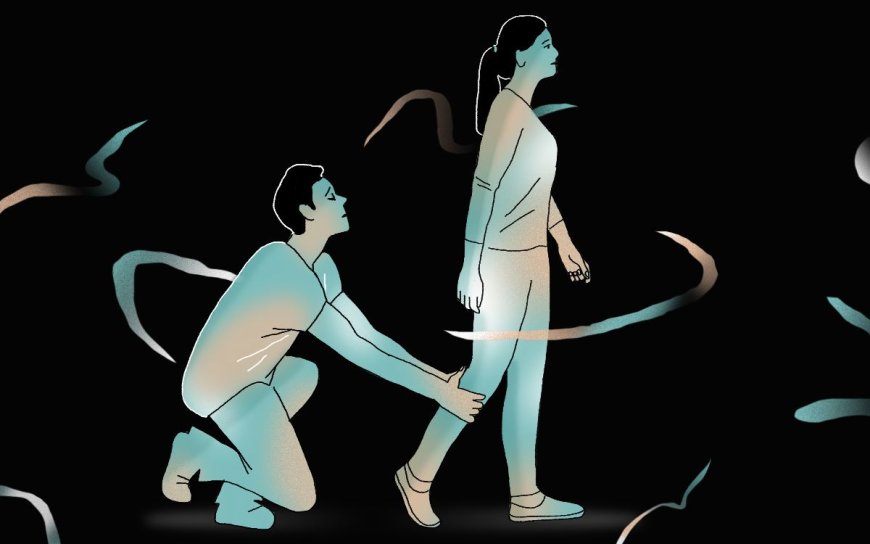DEPENDENT PERSONALITY DISORDER
Anxious personality disorders include dependent personality disorder (DPD). DPD sufferers frequently experience feelings of helplessness, submission, and incapacity to care for themselves. They might struggle to come to simple decisions.

An overwhelming need for other people to look after you is a symptom of dependent personality disorder (DPD). The emotional and physical needs of a person with DPD are met by those who are close to them. They could be characterized by others as clinging or needy. Individuals who suffer from DPD think they are incapable of caring for oneself. Without other people's validation, they might struggle to make simple decisions like what to eat or wear. Most of the time, they are unaware of the problems with their beliefs and actions.
What are the Symptoms of DPD?
DPD patients put a lot of effort into trying to please others and develop an emotional dependence on them. In addition to having a fear of being alone, people with DPD frequently exhibit needy, clinging, and passive behaviors. Its personality disorder also frequently manifests as the following:
· Unable to make decisions without the guidance and assurance of others, even simple ones like what to wear,
· Reliance on a partner or friend to make decisions about where to live and work; avoidance of adult responsibilities by appearing weak and hopeless,
· Strong feelings of helplessness or devastation after a relationship ends, as well as an intense fear of being abandoned; people with DPD frequently move straight into new relationships after a relationship ends,
· Overly sensitive to criticism,
· Pessimism and low self-esteem, which includes thinking they can't take care of themselves,
· Avoidance of disagreement with people out of concern for their support or approval,
· Incapacity to begin tasks or projects due to a lack of confidence,
· Having trouble being alone,
· Willingness to tolerate mistreatment and abuse from others,
· Placing the needs of their caregivers above their own,
· Tendency to be naive and to fantasize.
Person who has dependent personality disorder may say “I cannot care for myself.”
Dependent personality disorder does not have a clear cause, but certain situations and conditions can increase a person's risk of getting the disorder. They consist of:
· Traumatic childhood abandonment due to war or family circumstances anxiety, depression, or personality disorders running in the family,
· Surviving childhood abuse, including stifling parenting, withdrawn parenting, or having parents who punished individual thinking,
· Having a chronic physical illness in childhood
Gender-Related Diagnostic Issues
In clinical settings, dependent personality disorder has been diagnosed more frequently in females, even though some studies indicate similar prevalence rates among males and females.
Treatment for DPD
The main dependent personality disorder treatments are usually psychotherapy or psychodynamic therapy, often cognitive behavioral therapy (CBT). Sometimes, a person might take medication to relieve underlying depression or anxiety.
How Do You Deal With Someone With DPD?
Find out as much as you can about dependent personality disorder if your loved one is showing signs of being overly needy and unable to function independently but has not yet received a DPD diagnosis. Keep an eye on your own actions and make an effort not to support their dependence or assume their responsibilities. Expressing your concern to your loved one is vital. Offer to accompany them to the first session if they would like you to, and suggest that they speak with a physician or therapist to get evaluated. Aim to avoid coming across as judgmental or harsh.
References
Dependent Personality Disorder | Knowledge Center. (n.d.-b). Sheppard Pratt. https://www.sheppardpratt.org/knowledge-center/condition/dependent-personality-disorder/
Dependent Personality disorder. (2006, February 1). WebMD. https://www.webmd.com/anxiety-panic/dependent-personality-disorder
Loving Someone with Dependent Personality Disorder – BrightQuest Treatment Centers. (n.d.). https://www.brightquest.com/bipolar-disorder/loving-someone-with-dependent-personality-disorder/
Professional, C. C. M. (n.d.). Dependent Personality disorder. Cleveland Clinic. https://my.clevelandclinic.org/health/diseases/9783-dependent-personality-disorder
What's Your Reaction?















































































